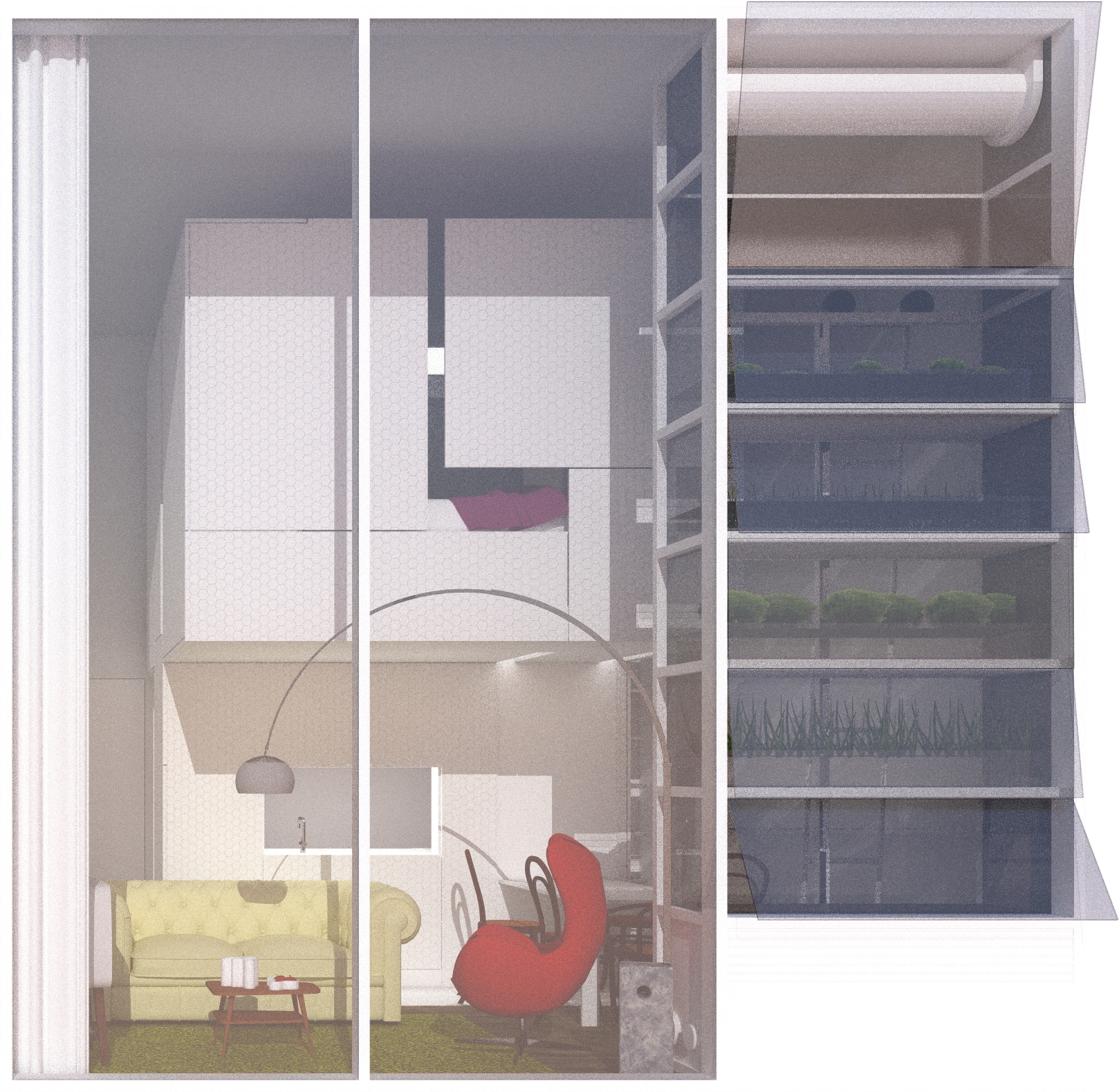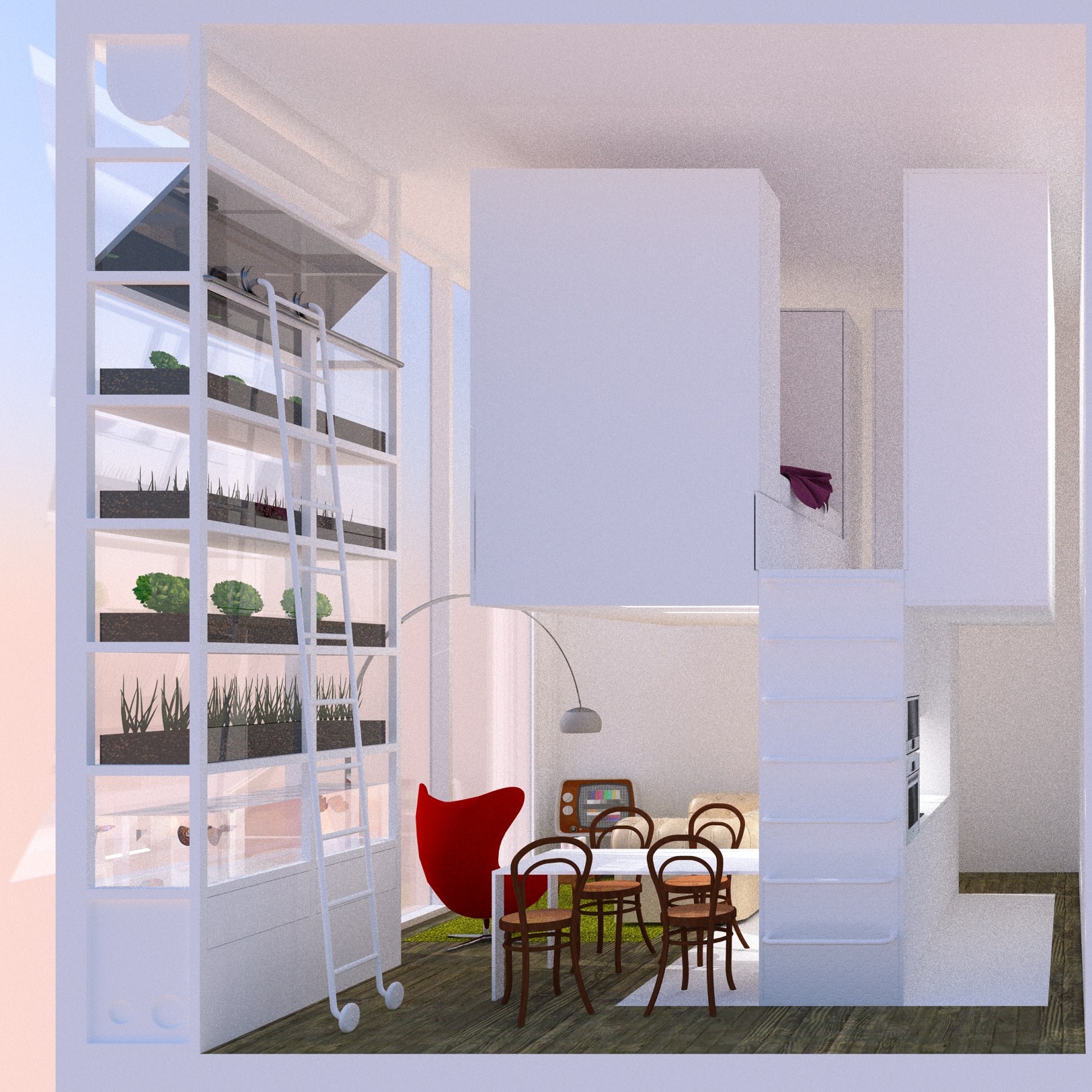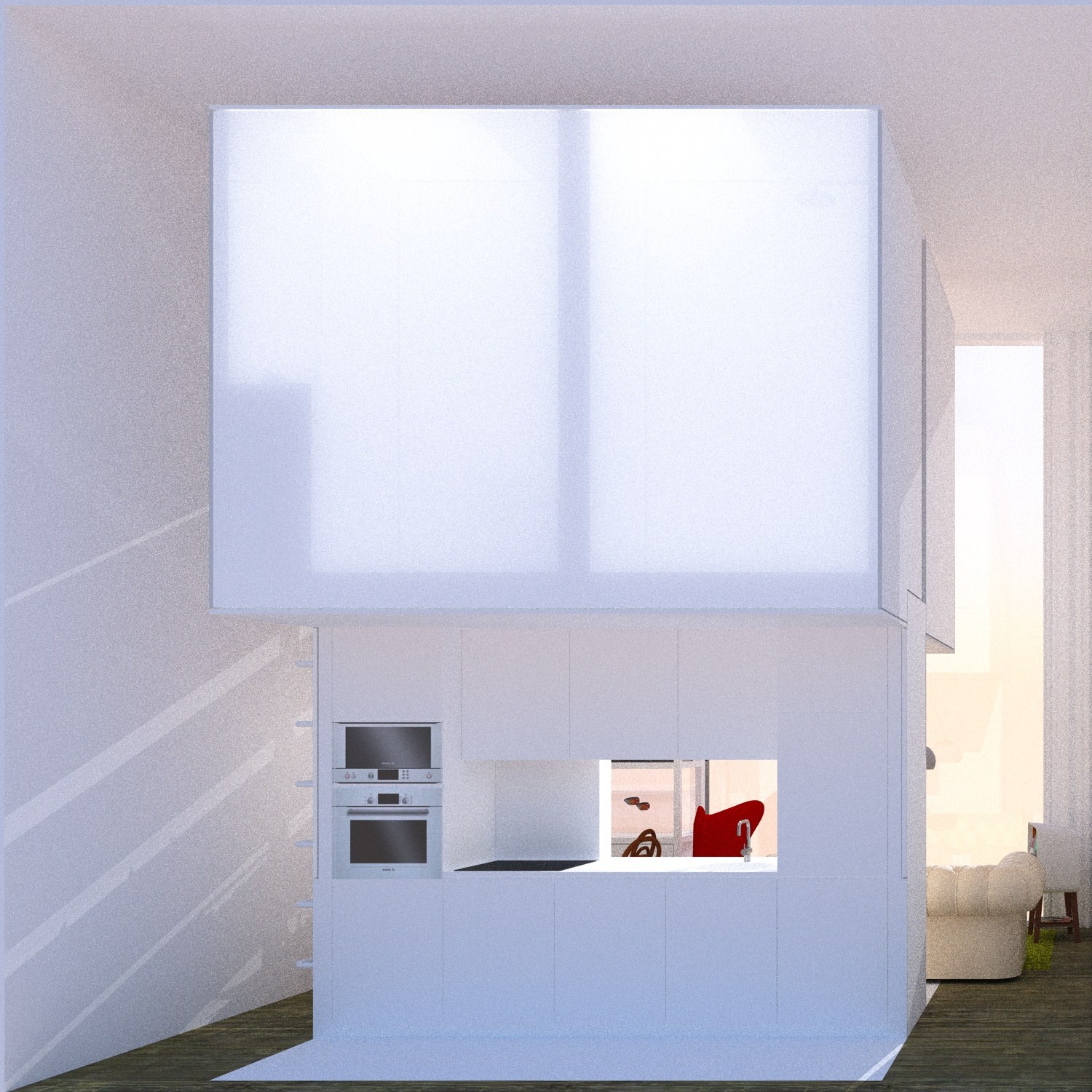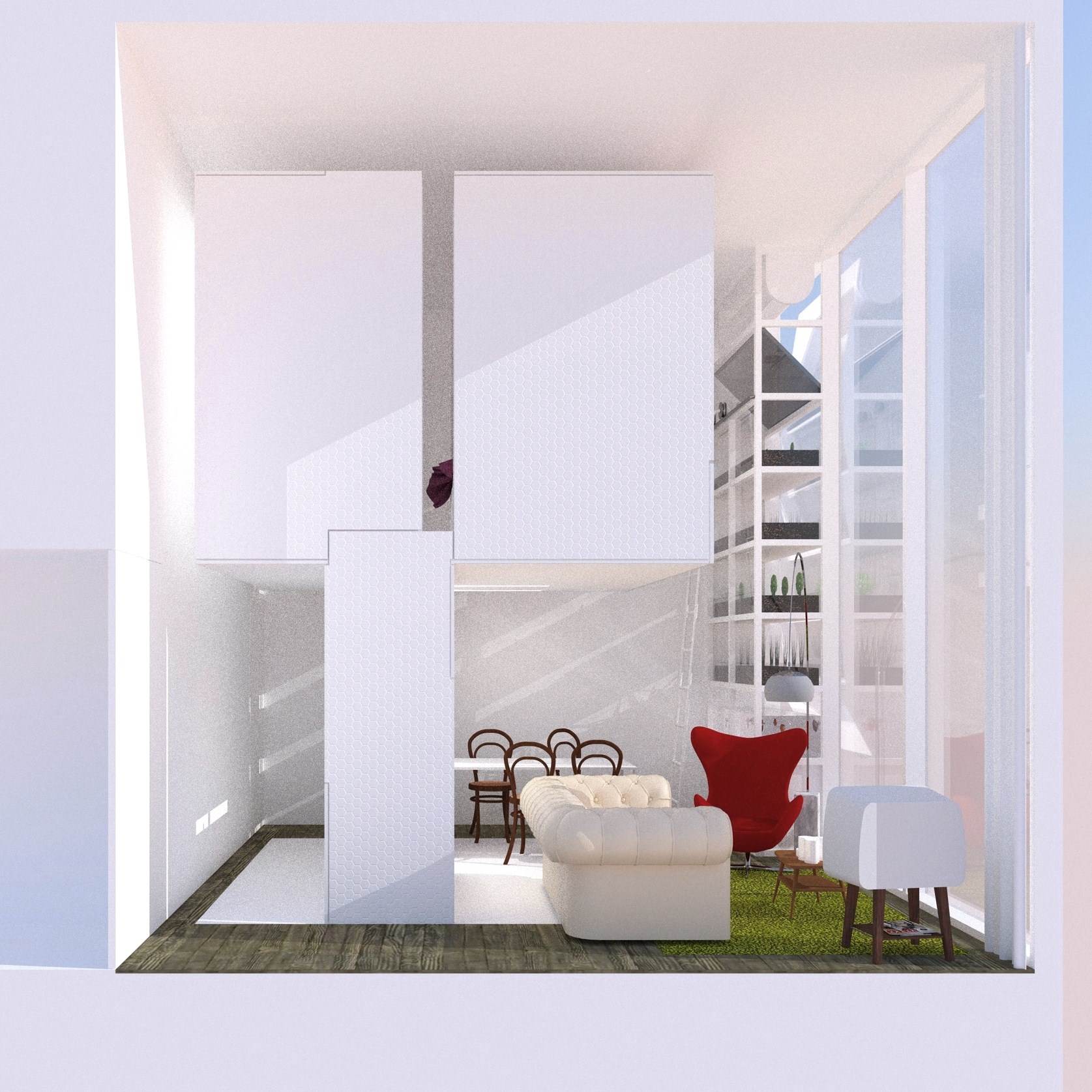5M cUBE hOUSE
Because the future of the kitchen is to integrate itself seamlessly into the home, the kitchen of the future is a home.
The kitchen, as an autonomous compartment, will disappear. There will remain a set of utility equipment, which we currently call household appliances. In the future, they will evolve into highly computerized equipment, with digital and electronic sensors remotely connected to “tablets” or other devices of the kind; they will be able to propose recipes according to the user’s pre-configured diet, or according to their mood, decoding their brain impulses; The confection may not even pass through our hands, but through “3d” printers that, sculpting layer upon layer, will present us deliciously made dishes. Afterward, there will be an incessant search for the dematerialization of equipment, producing increasingly “light” models. So “light” that they will occupy no more than a small closet, or drawer, in a room.
But, while that distant future does not arrive, we will think about the kitchen of the near future, with the technology and typology present. The technology is BOSCH. The typology is that of a HOUSE.
– Why is the kitchen of the future a home?
– Because, if the kitchen is no longer distinguished from other spaces, it belongs to them and they belong to it, forming a functional whole. This functional whole – the house – houses social and private activities, such as preparing meals, eating, working, gathering, reading, sleeping, etc…
Social activities will be lived in a participatory way, interacting with each other, which imposes concordant spatial and architectural solutions. A typology of open space for social functions, as long as the privacy of the rooms and bathrooms is preserved, can be interesting and certainly more explored in the future.
As for programmatic needs, we will see a greater desire/need to adopt ecologically sustainable solutions, based on environmentally friendly technology, low energy devices, waste management devices, and self-contained mini-gardens. These mini-gardens will take advantage of the free natural resources available (rainwater, sun, and wind) and treat the organic residues we produce (organic waste and sewage from black waters and Sapotaceae), transforming them into nutrients for the germination of crops. These organic cultures will be the raw material for making meals, and the gardens will become part of any housing program.







